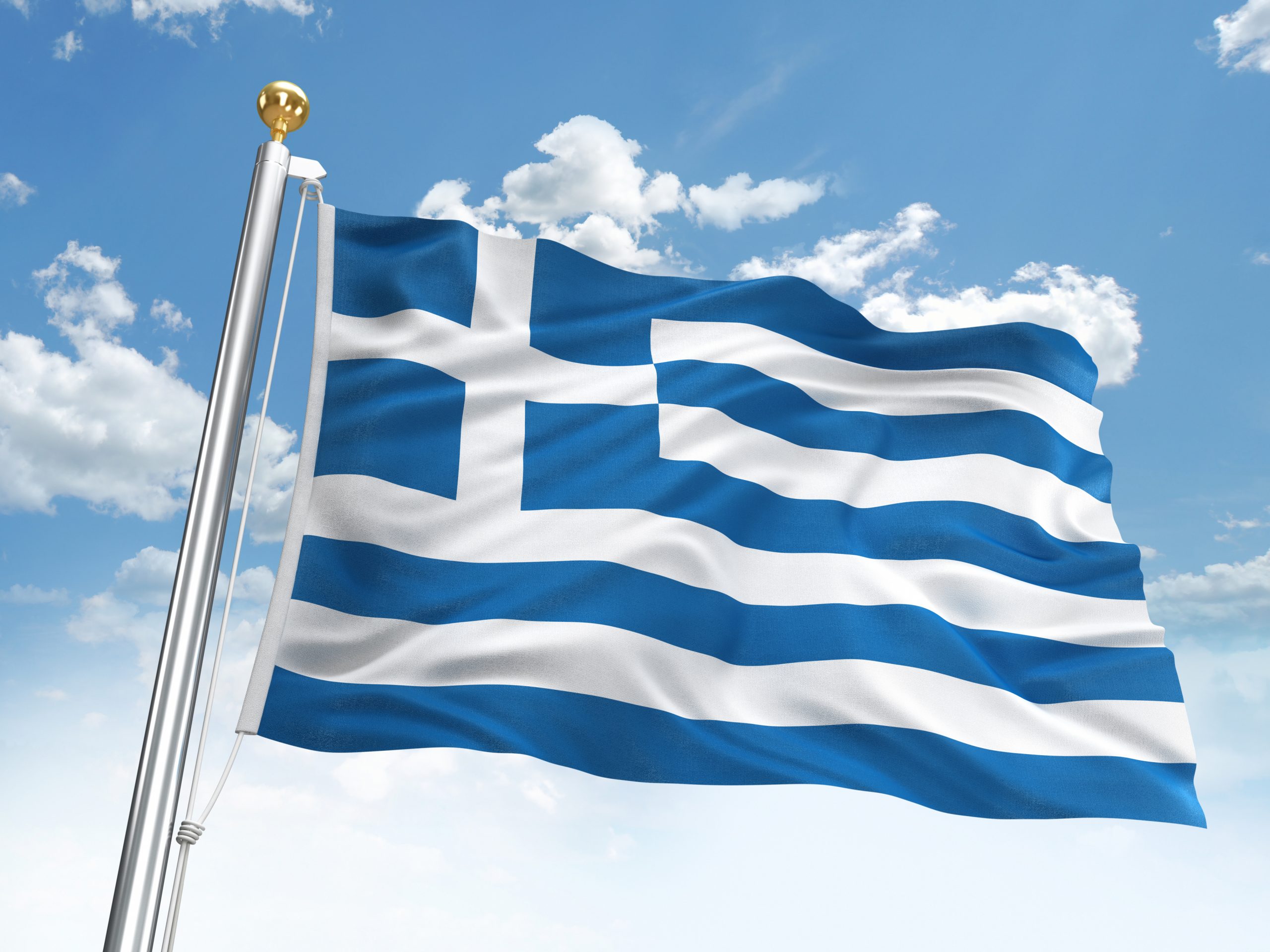Menu
Install the app
How to install the app on iOS
Follow along with the video below to see how to install our site as a web app on your home screen.
Note: This feature may not be available in some browsers.
You are using an out of date browser. It may not display this or other websites correctly.
You should upgrade or use an alternative browser.
You should upgrade or use an alternative browser.
Greek History Community
What role did Mani play in Greek independence?
- Thread starter kosta_karapinotis
- Start date
1 - 6 of 6 Posts
Here is more information about the Greek war of Independence, hope this helps and thanks for stopping by!

 www.greekboston.com
www.greekboston.com

Important facts to know about the Greek War of Independence
Learn all about some important and interesting facts about the Greek War of Independence.
k_tsoukalas
Administrator
The Greek War for Independence actually started earlier in Mani (March 17, 1821) than it did for the rest of Greece (March 25, 2021) when Mani officially declared war against the Ottoman Empire. The Ottomans constantly attacked Mani, hoping to finally gain a foothold there, but they were never able. Tired of the constant invasion attempts, Mani finally declared war. The rest of Greece followed over a week later, declaring war against the Ottomans on March 25th.
That's a beautiful story, it must be very powerful and prideful to be from this regionI think Mani declared war against the Ottoman Empire about a week or so before the rest of Greece. Mani is looked at as a catalyst for the war, their boldness in declaring war as a region inspired the rest of Greece to follow suit. Fascinating part of Greek history!
I would be interested to hear how the people of Mani see it... I agree, the story is beautiful!That's a beautiful story, it must be very powerful and prideful to be from this region
1 - 6 of 6 Posts
JOIN THE DISCUSSION AND READ OTHER GREEK INFO:
Family Trees
- Rízes Hellenic Genealogy
- Greek History Forum
- Replies: 0
Hey fellow members,
As we traverse the rich tapestry of Greek culture and history on this platform, I've been pondering something quite fascinating: our family histories. How many of us have delved into the intricate branches of our family trees?
Genealogy, the study of family history and lineage, often unveils captivating stories, connections, and traditions passed down through generations. Whether you're just beginning to trace your ancestry or have been meticulously documenting it for years, I'd love to hear about your experiences.
Here are a few questions to spark our discussion:
Looking forward to our discussion,
RizeGen
As we traverse the rich tapestry of Greek culture and history on this platform, I've been pondering something quite fascinating: our family histories. How many of us have delved into the intricate branches of our family trees?
Genealogy, the study of family history and lineage, often unveils captivating stories, connections, and traditions passed down through generations. Whether you're just beginning to trace your ancestry or have been meticulously documenting it for years, I'd love to hear about your experiences.
Here are a few questions to spark our discussion:
- What inspired you to start researching your family history?
- Have you encountered any unexpected discoveries or fascinating tales along the way?
- What resources or tools have you found most helpful in your genealogical journey?
- Do you have any tips or advice for someone interested in starting their own family tree?
Looking forward to our discussion,
RizeGen
What did the Ancient Greeks eat?
- mj_toronto8
- Greek History Forum
- Replies: 1
I am fascinated by the Ancient Greeks. I have a feeling that some of our modern Greek recipes are similar to the ancient ones. Like spoon sweets. It think that seems like something that was developed a long time ago as a way to preserve the fruit harvest.
So, I have been researching this. What did the Ancient Greeks eat? I wanted to share this video because I thought it was interesting.
So, I have been researching this. What did the Ancient Greeks eat? I wanted to share this video because I thought it was interesting.
Interesting Greek History Topics I Like
- redsoxdw_
- Greek History Forum
- Replies: 2
The Persian Wars: The wars fought between Greece and the Persian empire in the 5th century BC were some of the most consequential conflicts of ancient times. Learn about the key events, such as the Battle of Marathon and the Battle of Thermopylae, and the strategies that allowed the Greeks to repel the Persian invaders.
The Rise of Athens: Arguably the most influential city-state in ancient Greece, Athens was the birthplace of democracy, philosophy, and the arts. Follow the rise of Athens from a humble village to a powerhouse of trade and culture.
The Peloponnesian War: The decades-long conflict between Athens and Sparta was a turning point in Greek history, leading to the decline of Athens and the rise of Macedon under Philip II and his son Alexander.
The Life of Alexander the Great: The young conqueror who led his armies across the known world, Alexander the Great is one of the most famous and admired figures of ancient history. Learn about his upbringing, his conquests, and his legacy.
The Olympic Games: A tradition that continues to this day, the ancient Olympics were a celebration of sports, culture, and political power. Explore the origins of the games and the events that took place.
The Rise of Athens: Arguably the most influential city-state in ancient Greece, Athens was the birthplace of democracy, philosophy, and the arts. Follow the rise of Athens from a humble village to a powerhouse of trade and culture.
The Peloponnesian War: The decades-long conflict between Athens and Sparta was a turning point in Greek history, leading to the decline of Athens and the rise of Macedon under Philip II and his son Alexander.
The Life of Alexander the Great: The young conqueror who led his armies across the known world, Alexander the Great is one of the most famous and admired figures of ancient history. Learn about his upbringing, his conquests, and his legacy.
The Olympic Games: A tradition that continues to this day, the ancient Olympics were a celebration of sports, culture, and political power. Explore the origins of the games and the events that took place.
Story of the Birth of Democracy
- axariotisxy
- Greek History Forum
- Replies: 1
I just watched a nice documentary about the birth of democracy in Athens. This is so fascinating! I didn't realize the nuances, only the basics about how it began in Athens. This documentary goes into a lot more detail.
My Top Favorite Greek Philosophers
- paharo45
- Greek History Forum
- Replies: 1
There are too many philosophers to count, but these are the ones I am studying at the moment. It's fascinating to me how influential the Greek philosophers are. Here's some things I am learning:
#1 Socrates
If philosophy had a poster boy, Socrates might very well be it. The father of Western philosophy, Socrates was a gadfly to Athenian society, questioning everything and Master to Plato. Known for the Socratic Method and his unflinching commitment to truth, Socrates' influence is immeasurable despite never having written a word.
#2 Plato
Rightly succeeding his mentor on this list, Plato's Academy saw him birth the first "university" of its kind. His unabashed idealism, immortal Forms, allegories like the Cave, and the pursuit of 'The Good' in moral philosophy set the stage for much intellectual discourse.
#3 Aristotle
Aristotle, another of Plato's students, had a more grounded approach to philosophy than his predecessor. With establishing principles of logic and reason, and contributions to virtually every field of academia, from poetry to physics, Aristotle's body of work remains foundational.
#4 Heraclitus
Heraclitus, famed for the idea that "change is the only constant," viewed the cosmos through a lens of process, flux, and an everlasting Logos that governs the world. Although little of his work survives, his influence on ancient and modern thinkers is profound.
#5 Epicurus
Known for his eponymous philosophy, Epicurus taught that the greatest good is to seek modest pleasures in order to attain a state of tranquility, freedom from fear (ataraxia), and absence of bodily pain (aponia). Often misunderstood, Epicureanism is starkly different from the modern use of 'epicurean' - it's much less about a luxury lifestyle and more about ethical considerations regarding personal fulfillment.
#1 Socrates
If philosophy had a poster boy, Socrates might very well be it. The father of Western philosophy, Socrates was a gadfly to Athenian society, questioning everything and Master to Plato. Known for the Socratic Method and his unflinching commitment to truth, Socrates' influence is immeasurable despite never having written a word.
#2 Plato
Rightly succeeding his mentor on this list, Plato's Academy saw him birth the first "university" of its kind. His unabashed idealism, immortal Forms, allegories like the Cave, and the pursuit of 'The Good' in moral philosophy set the stage for much intellectual discourse.
#3 Aristotle
Aristotle, another of Plato's students, had a more grounded approach to philosophy than his predecessor. With establishing principles of logic and reason, and contributions to virtually every field of academia, from poetry to physics, Aristotle's body of work remains foundational.
#4 Heraclitus
Heraclitus, famed for the idea that "change is the only constant," viewed the cosmos through a lens of process, flux, and an everlasting Logos that governs the world. Although little of his work survives, his influence on ancient and modern thinkers is profound.
#5 Epicurus
Known for his eponymous philosophy, Epicurus taught that the greatest good is to seek modest pleasures in order to attain a state of tranquility, freedom from fear (ataraxia), and absence of bodily pain (aponia). Often misunderstood, Epicureanism is starkly different from the modern use of 'epicurean' - it's much less about a luxury lifestyle and more about ethical considerations regarding personal fulfillment.
Share and discuss Greek history!
WorldwideGreeks.com is a free online forum community where people can discuss Greek food, travel, traditions, history and mythology.
Join Worldwide Greeks here!
Join Worldwide Greeks here!
JOIN COMMUNITY FOR FREE
LOGIN TO YOUR ACCOUNT



